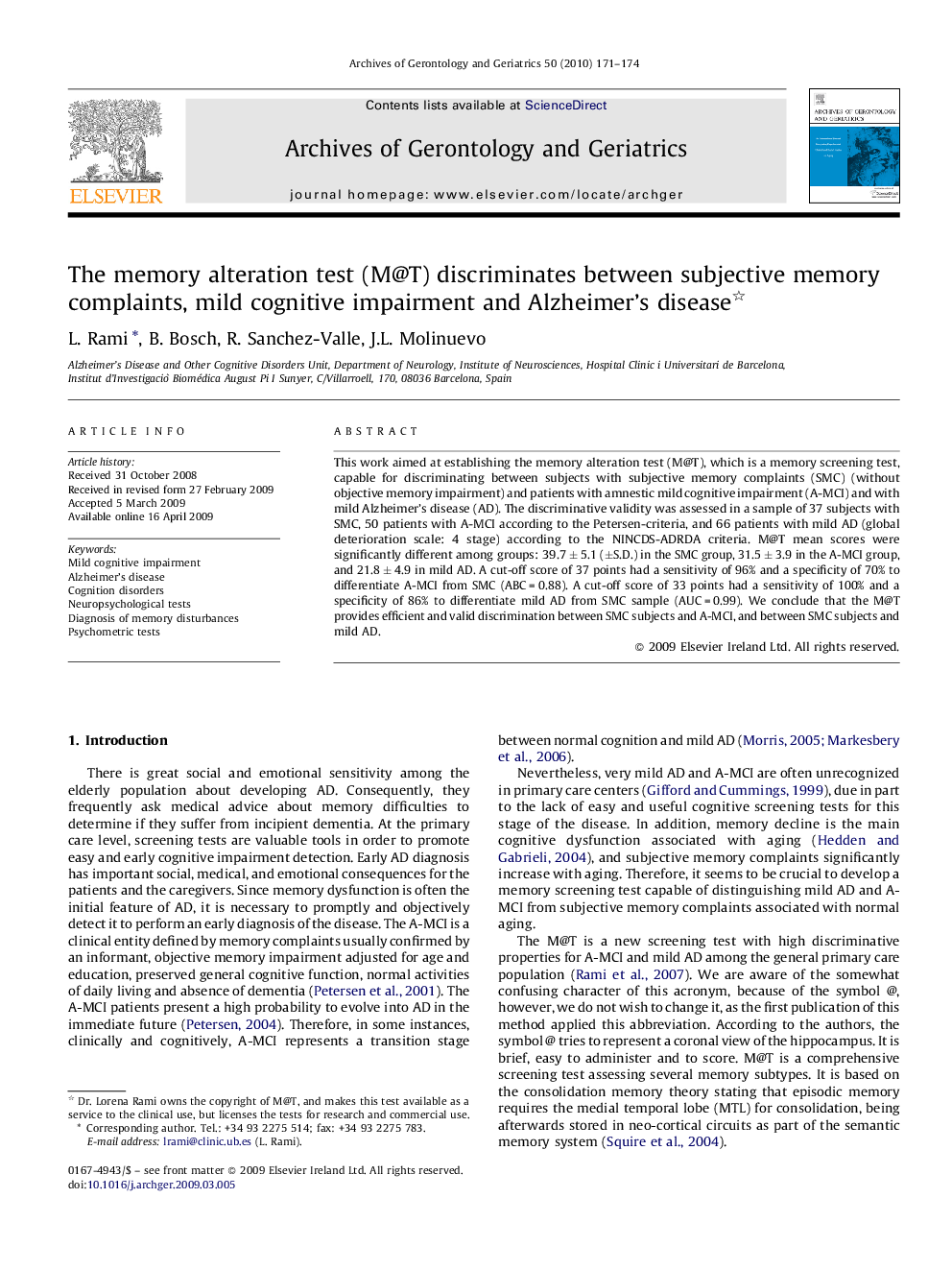| Article ID | Journal | Published Year | Pages | File Type |
|---|---|---|---|---|
| 1903753 | Archives of Gerontology and Geriatrics | 2010 | 4 Pages |
This work aimed at establishing the memory alteration test (M@T), which is a memory screening test, capable for discriminating between subjects with subjective memory complaints (SMC) (without objective memory impairment) and patients with amnestic mild cognitive impairment (A-MCI) and with mild Alzheimer's disease (AD). The discriminative validity was assessed in a sample of 37 subjects with SMC, 50 patients with A-MCI according to the Petersen-criteria, and 66 patients with mild AD (global deterioration scale: 4 stage) according to the NINCDS-ADRDA criteria. M@T mean scores were significantly different among groups: 39.7 ± 5.1 (±S.D.) in the SMC group, 31.5 ± 3.9 in the A-MCI group, and 21.8 ± 4.9 in mild AD. A cut-off score of 37 points had a sensitivity of 96% and a specificity of 70% to differentiate A-MCI from SMC (ABC = 0.88). A cut-off score of 33 points had a sensitivity of 100% and a specificity of 86% to differentiate mild AD from SMC sample (AUC = 0.99). We conclude that the M@T provides efficient and valid discrimination between SMC subjects and A-MCI, and between SMC subjects and mild AD.
